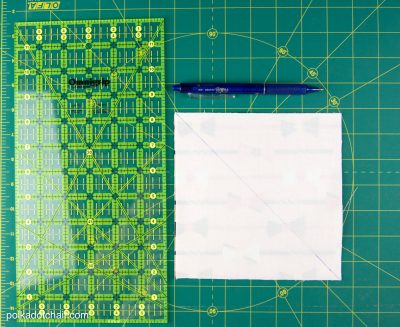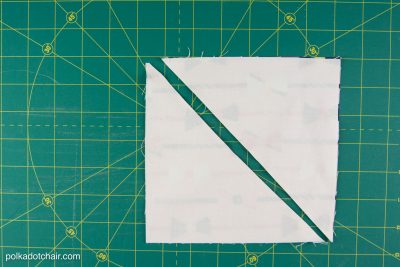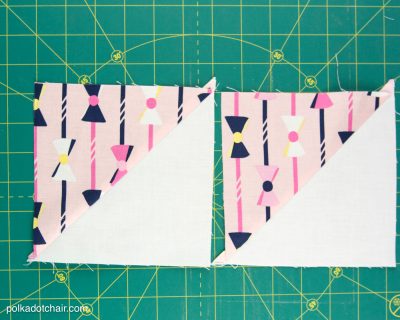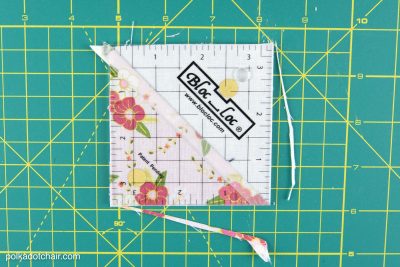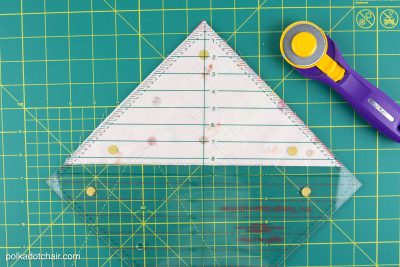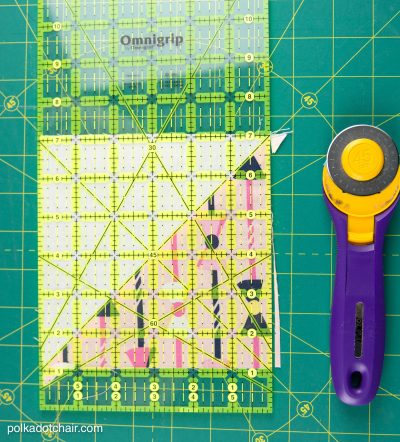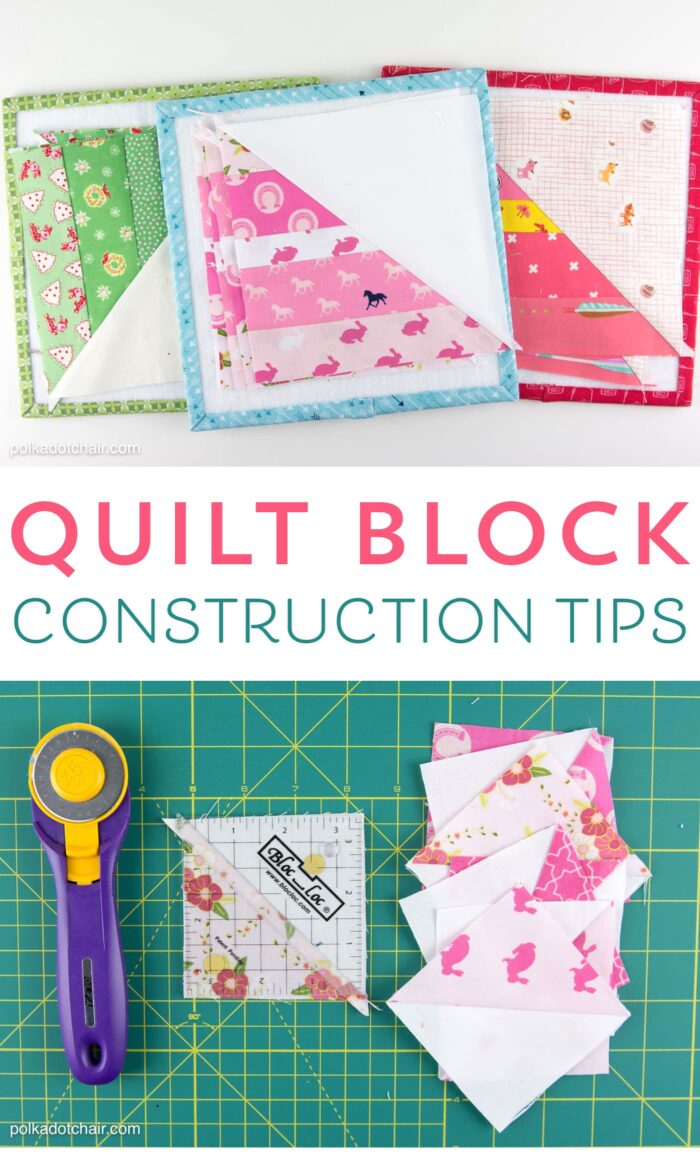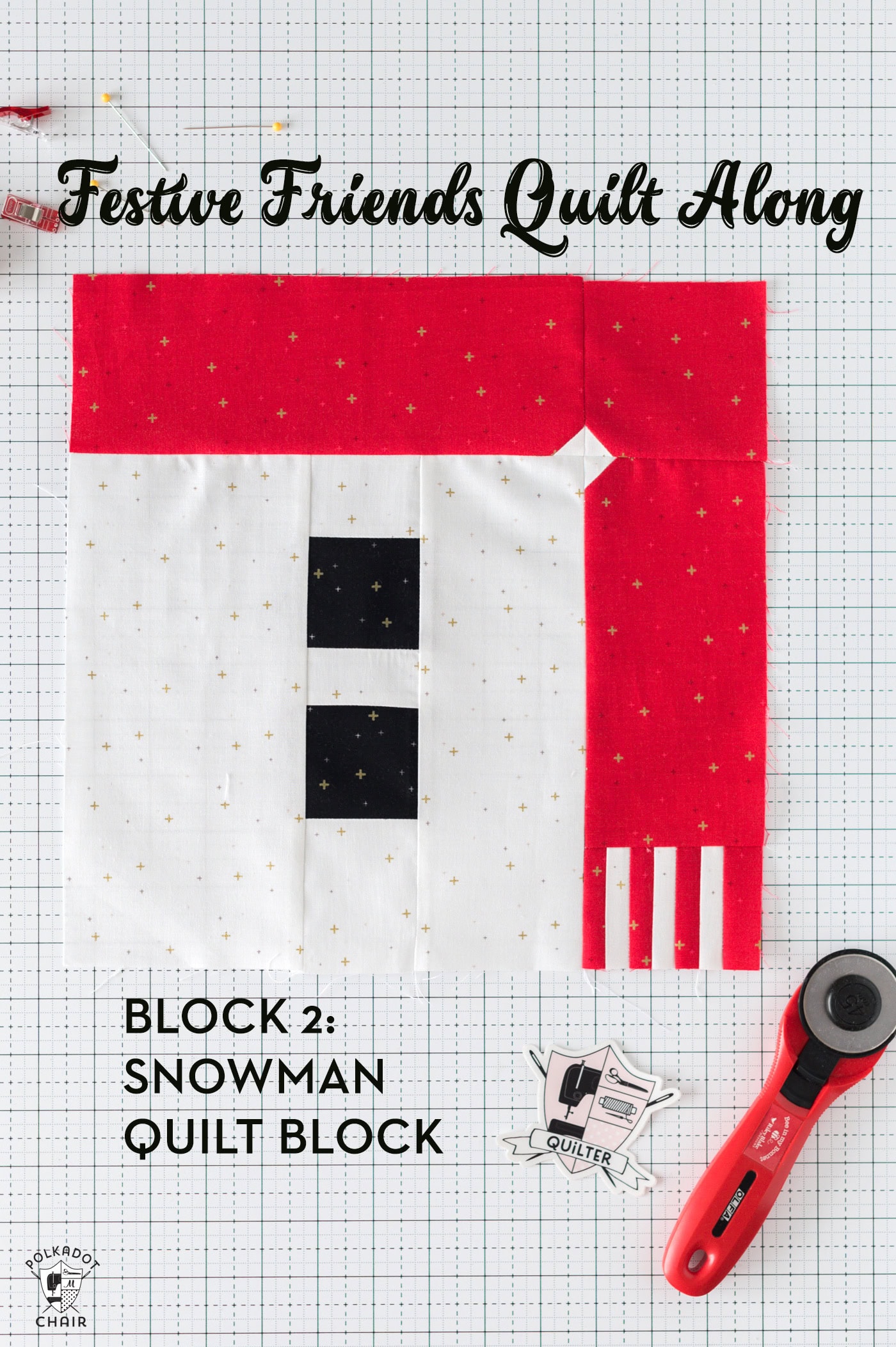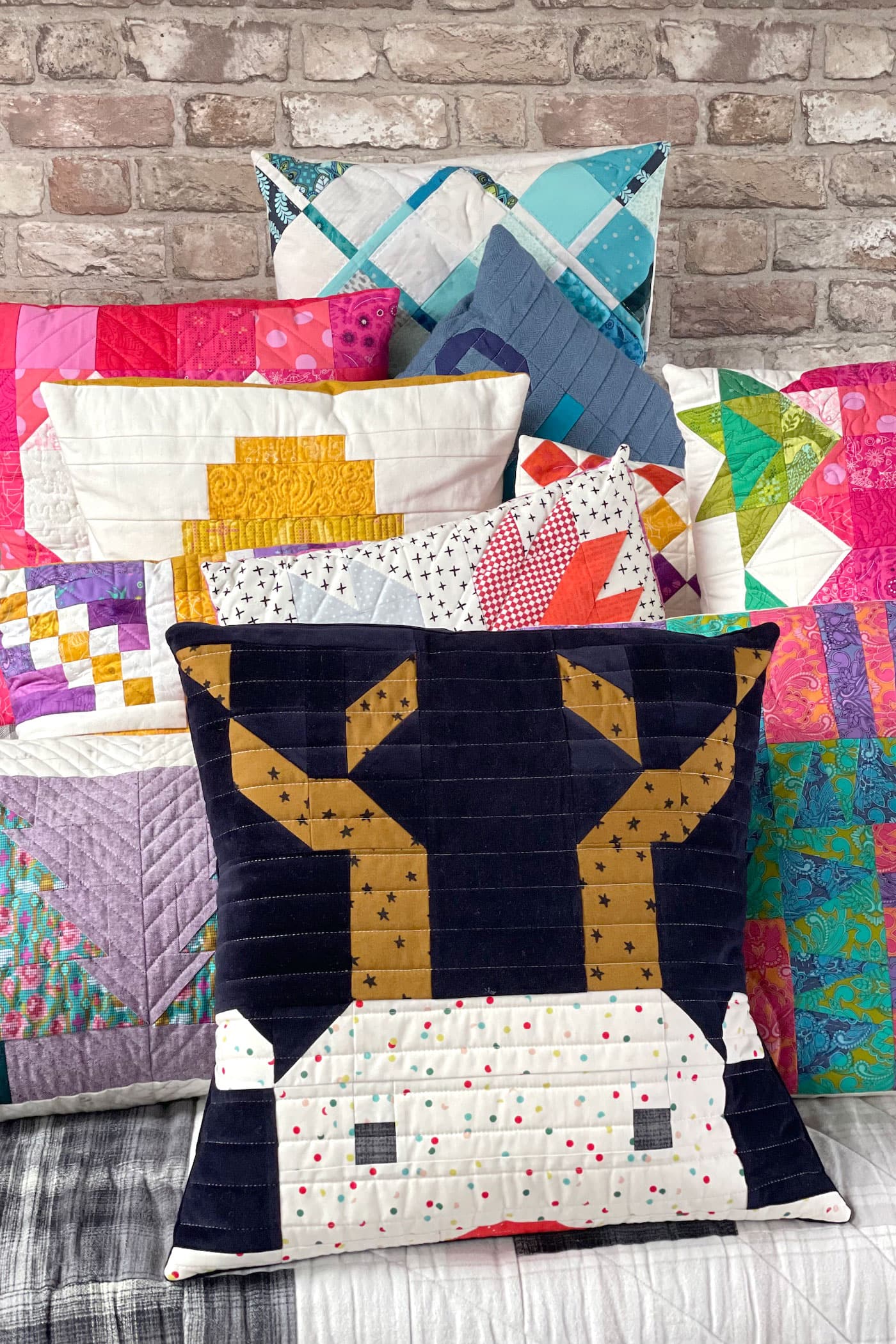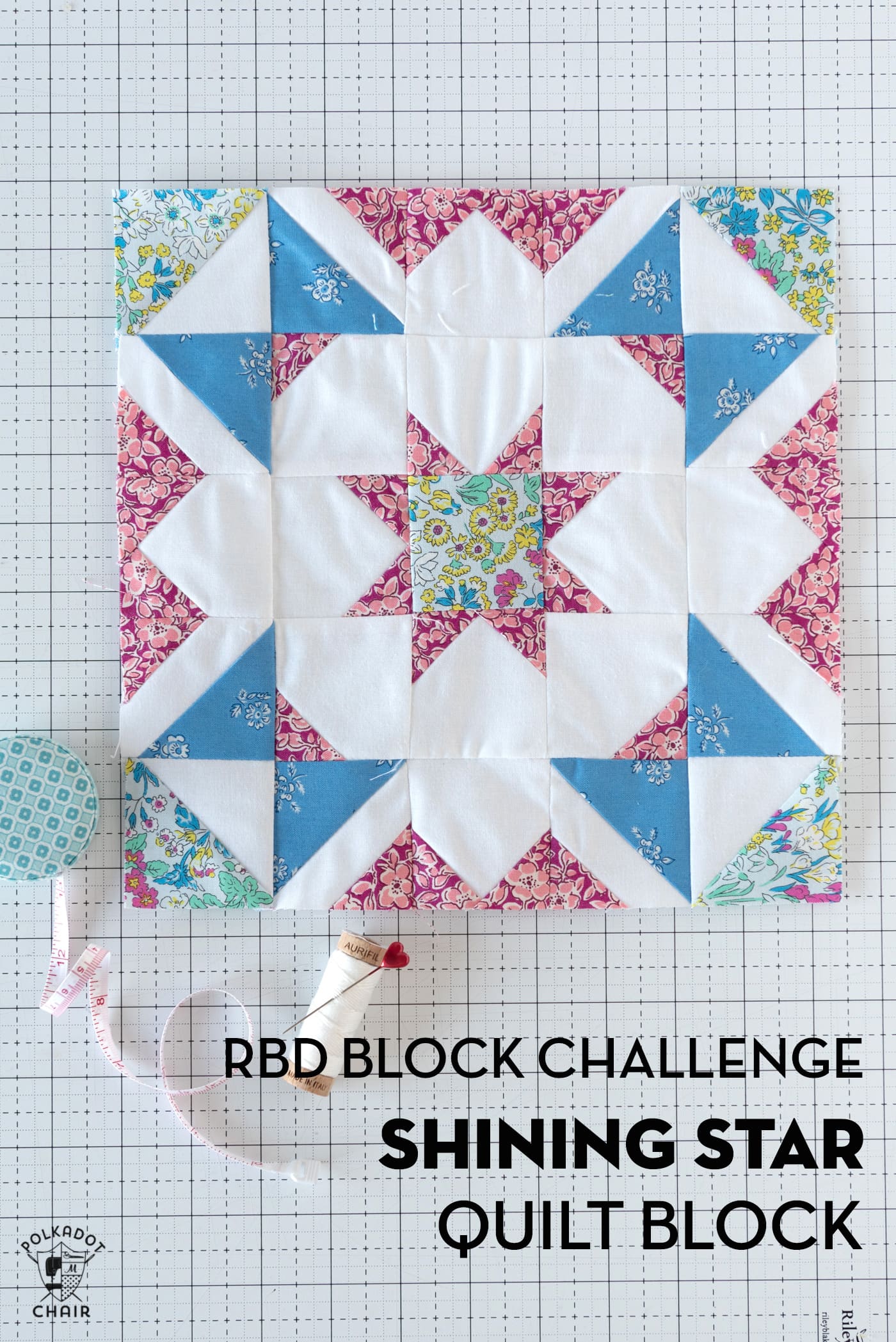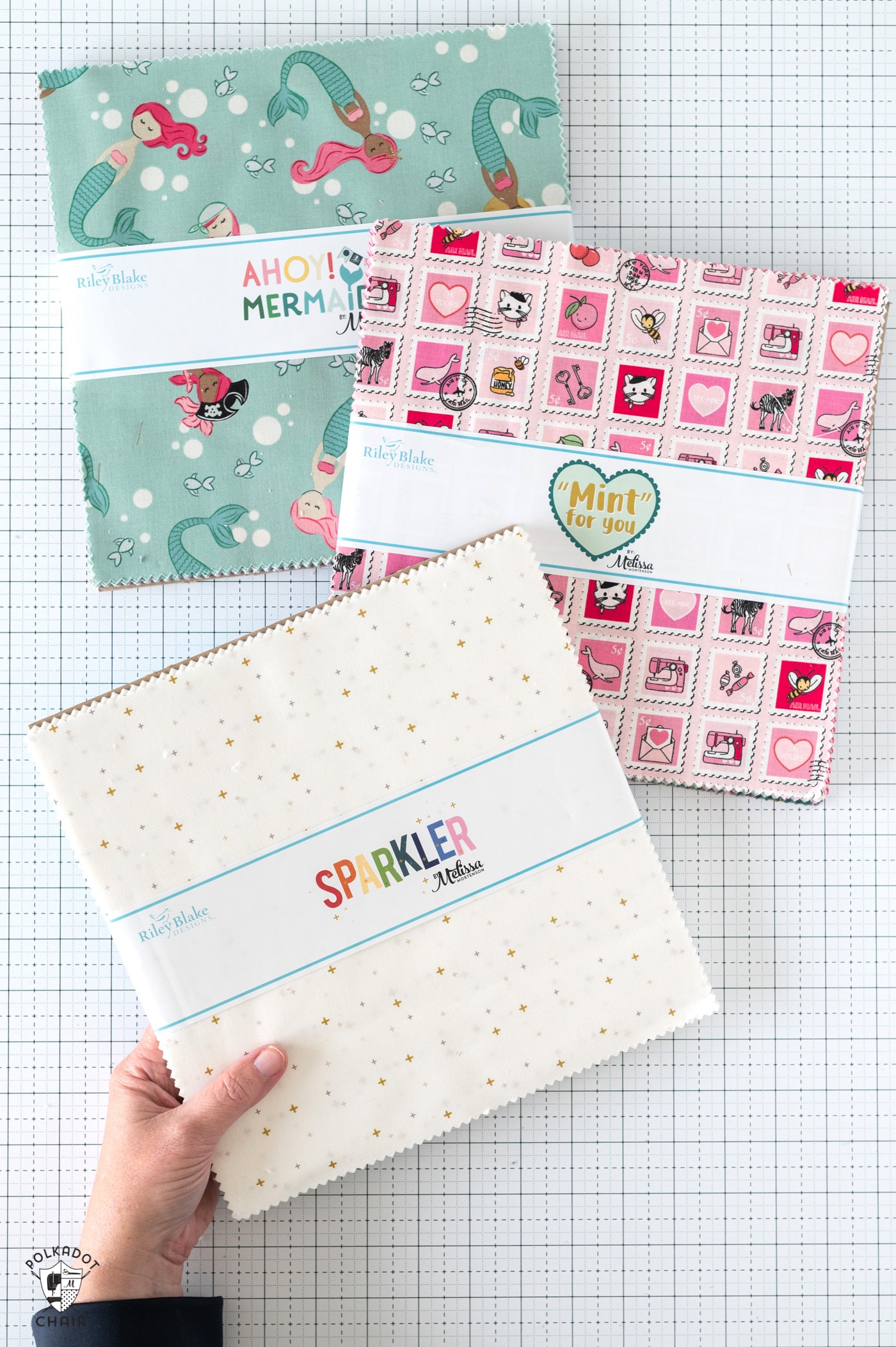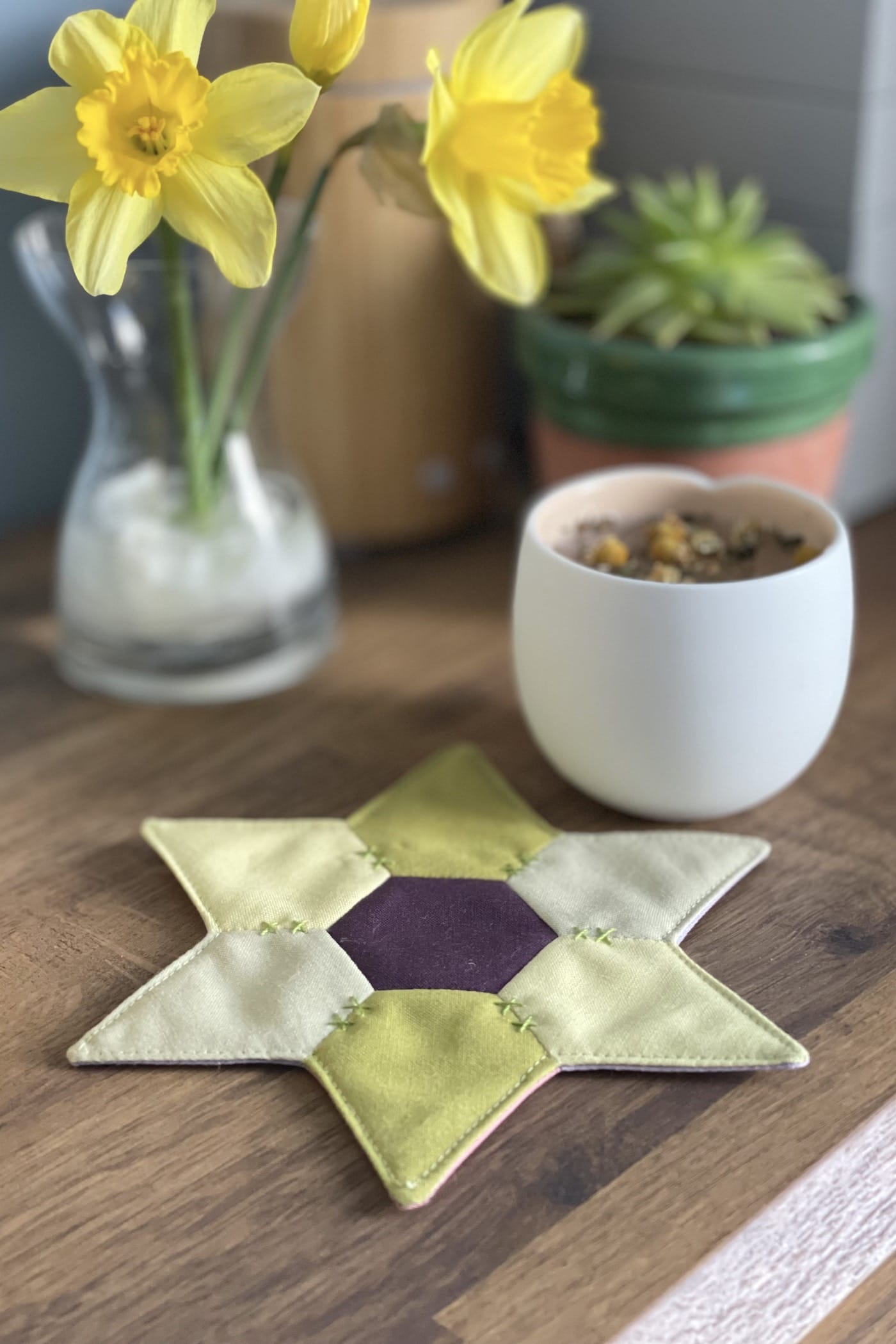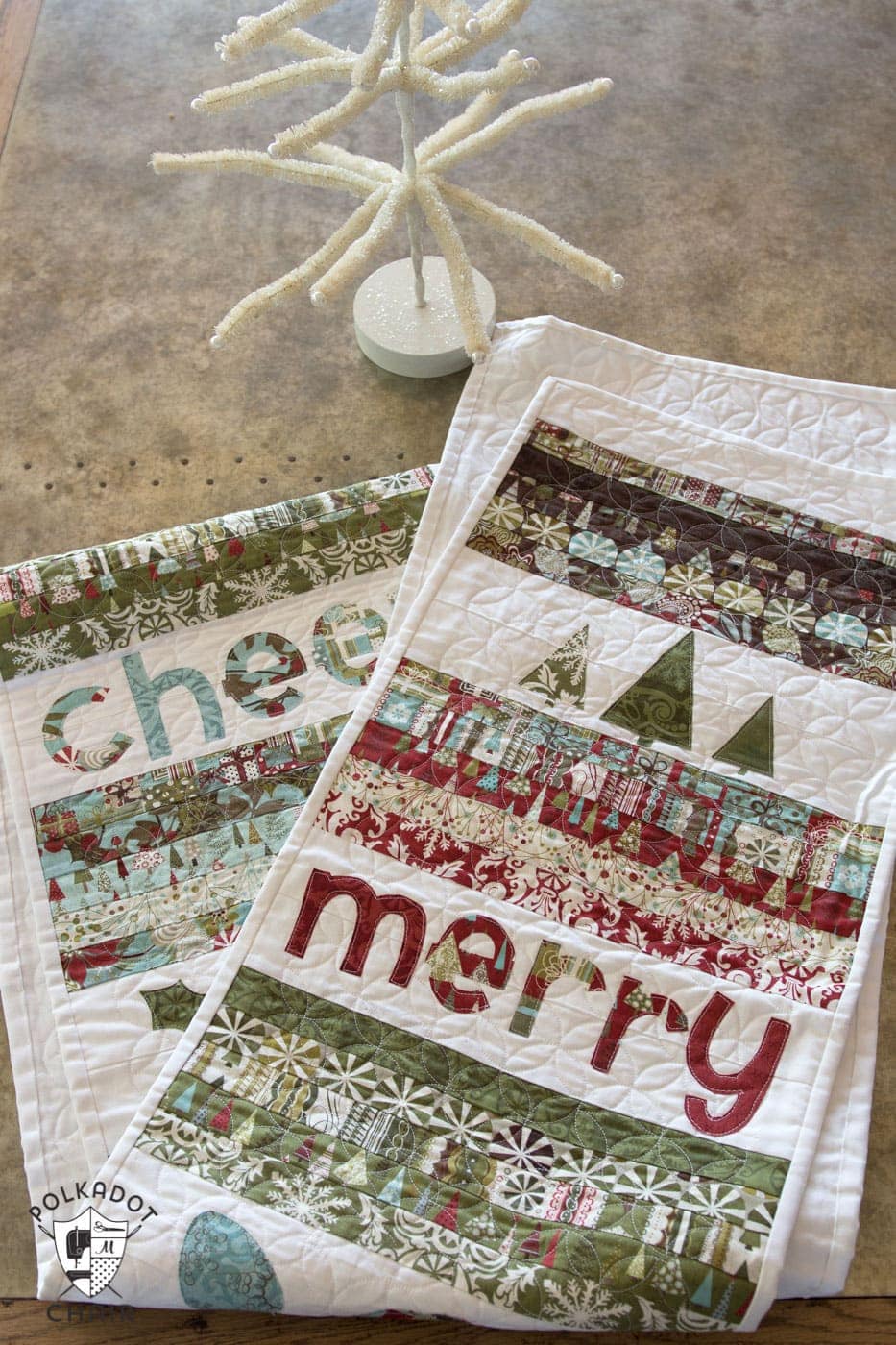How to Make Half Square Triangle Quilt Blocks
This tutorial will teach you the basics to make Half Square Triangle Quilt Blocks (sometimes referred to as HST’s). This tutorial does not contain any measurements. You’ll need to get those from the specific tutorial or pattern that you are using
Once you learn our technique, you can adapt it to make a half-square triangle in ANY size that you want!
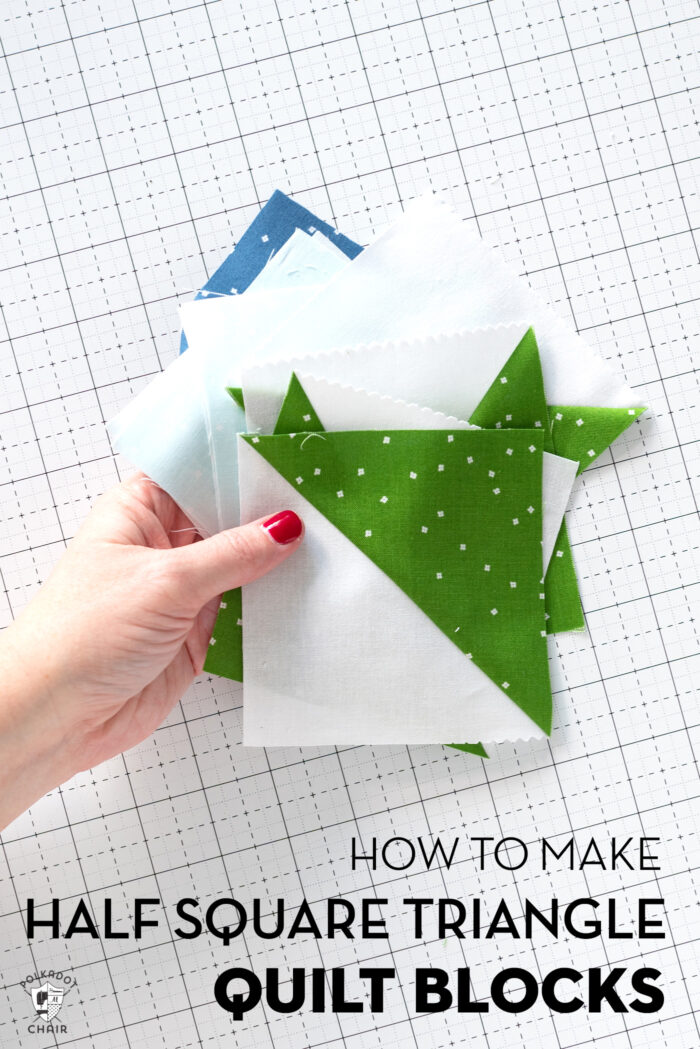
What are Half Square Triangle Quilt Blocks?
Half Square Triangle blocks are quilt blocks that contain two right triangles. They are an essential building block for many quilt patterns and are widely used in quilting.
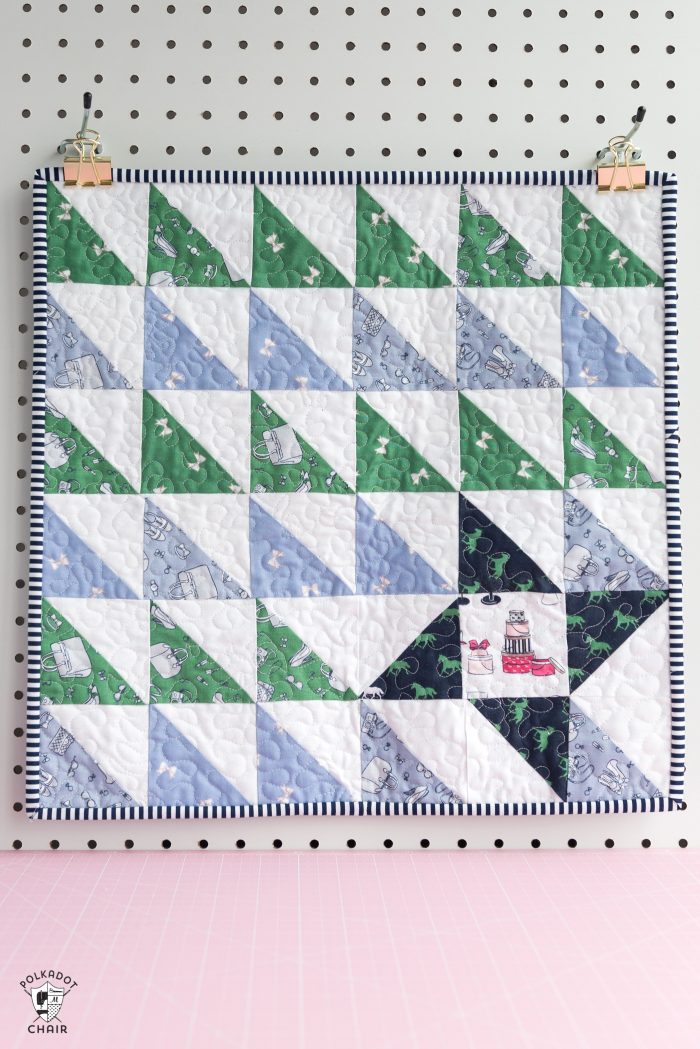
(pattern for mini quilt can be found on WeAllSew)
If you’ve constructed a lot of quilts from patterns and tutorials, you may notice that sometimes the pattern just instructs you to create a half square triangle but does not tell you how to do that.
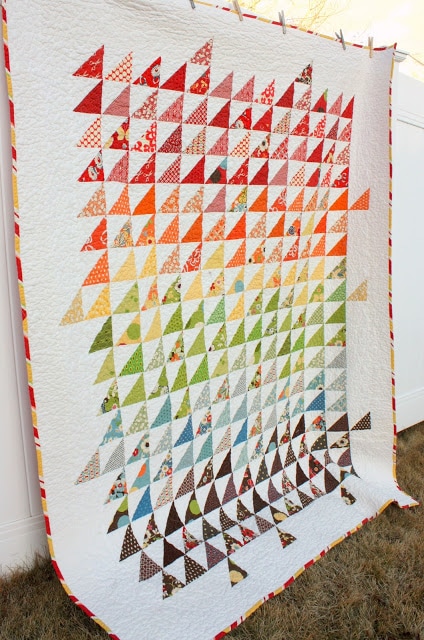
(Spectrum Half Square Triangle Quilt on Diary of a Quilter)
I’m going to share with you my favorite way to sew these type of blocks. There are several technqiues, all are good, this one is just my favorite.
What Size to Cut Your Fabric
I like to cut my half square triangle pieces 1″ larger than the FINISHED size I need. This gives me enough fabric to allow for proper squaring up when I’m finished. I also think it’s easier to cut fabric in 1″ increments, rather than the 7/8″ increments that some pattern use.
There are several ways to make a half-square triangle (HST) block. This tutorial will teach you how to “quick piece” your blocks. This will yield 2 quilt finished quilt blocks.
Note: We do not list specific measurements. Instead, we give you the basic construction technique. Once you learn that, you can adapt it to make an HST in ANY size that you want!
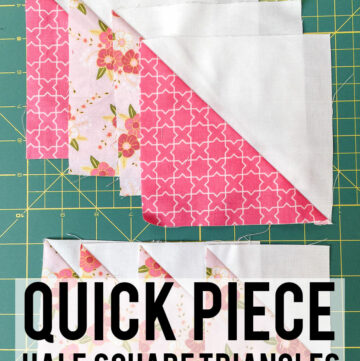
How to Make Half Square Triangle Quilt Blocks
Equipment
- Quilt in a Day Ruler
supplies
- 2 squares of fabric that are the same size in two different prints. 2 squares of fabric will yield 2 HST blocks.
Instructions
How to Calculate the Size of the Blocks
- As you create, trim, and sew your HST blocks you will loose 1".For example, if you want to create 6" FINISHED quilt blocks, two 7" x 7" squares of fabric will yield you two 6 1/2" x 6 1/2" HST blocks. When those HST blocks are sewn into a quilt they will be 6" x 6" finished blocks.Remember: Finished quilt block sizes refer to the size of the block after it is FINISHED and sewn into a quilt. It is not the size of the block after it is sewn.
Mark & Sew the Squares
- Note: Half Square Triangles are abbreviated to HST's.Begin by marking a diagonal line on the wrong side of one of your square pieces using a fabric-safe marking pen (I use Frixion Pens).
- Place it right sides facing on top of the 2nd square fabric piece.
- Stitch down each side of the marked line, exactly 1/4″ on each side of the center line.
- Using your quilt ruler and rotary cutter, cut along the drawn line. You will have 2 pieces that look like the photo.
- Press the pieces with the seams going towards the darker fabric. Be careful not to distort the shape.
Trim & Square Up the Blocks
- Since the fabric will distort as you sew and press it, it is necessary to square up and trim your HST blocks before you proceed. Most of the time you will trim your blocks to 1/2" smaller than the squares you started with.
- To do this I like to use Bloc Loc rulers. They have a groove down the center to keep your block straight as you trim. The only downside is that they come in specific sizes. I have purchased the rulers in 5 different sizes and find that I use them over and over again.
Alternate Methods to Square up Blocks
- You can also use the Quilt in a Day Half Square triangle ruler. With this ruler, you square up your triangle BEFORE you press it open. It also is easier to use when you need many sizes of HST's.
- You can also use your quilt ruler by lining up the seam of the block along the 45-degree angle mark on the ruler.
- TIP: Make sure that you are always careful with your measurements and you don't distort the seam as you press. Since the seam is on a diagonal it can easily distort since the fabric stretches across the bias.

